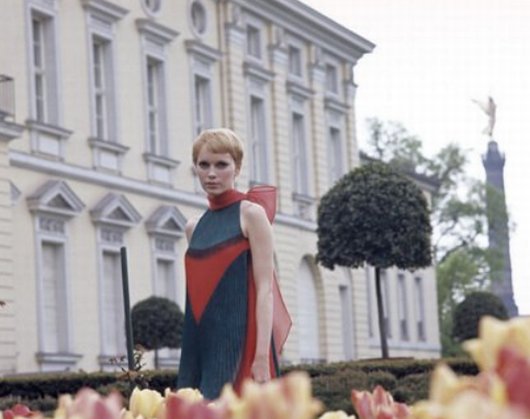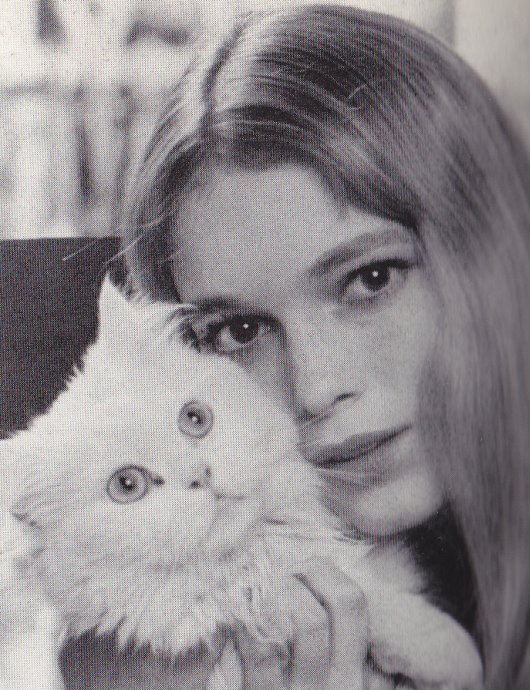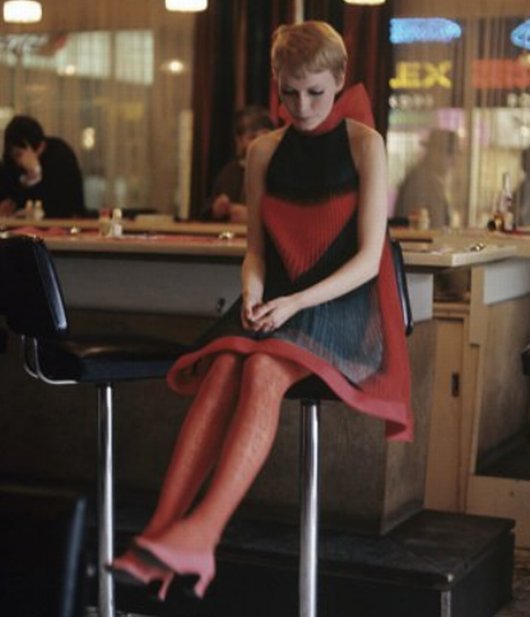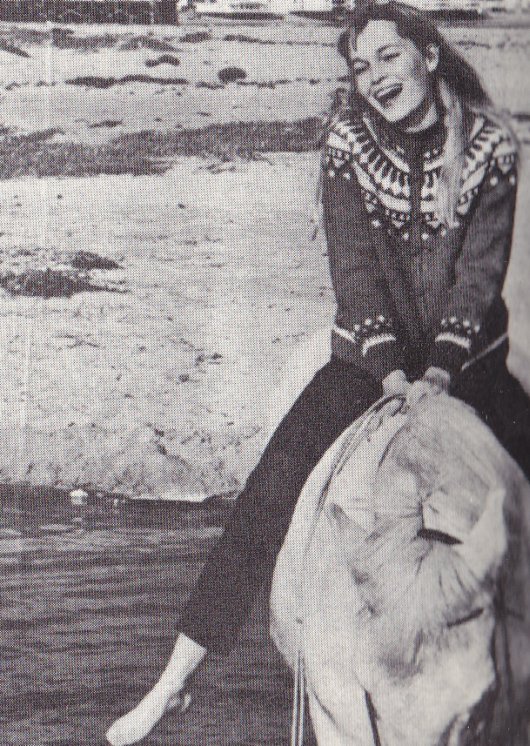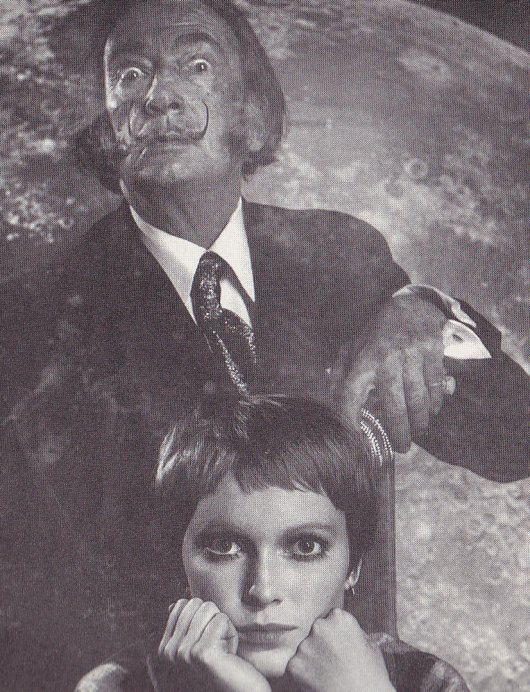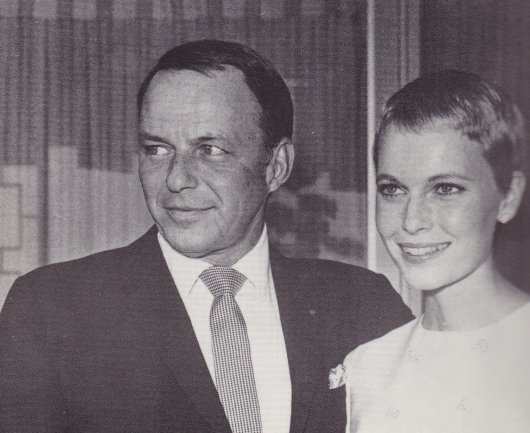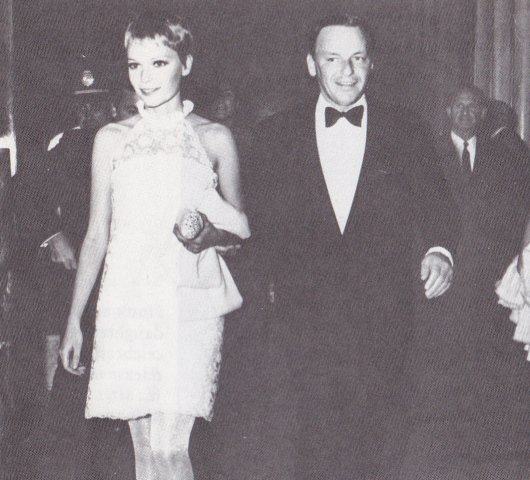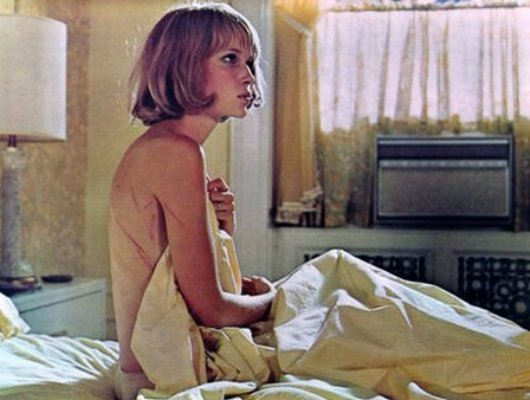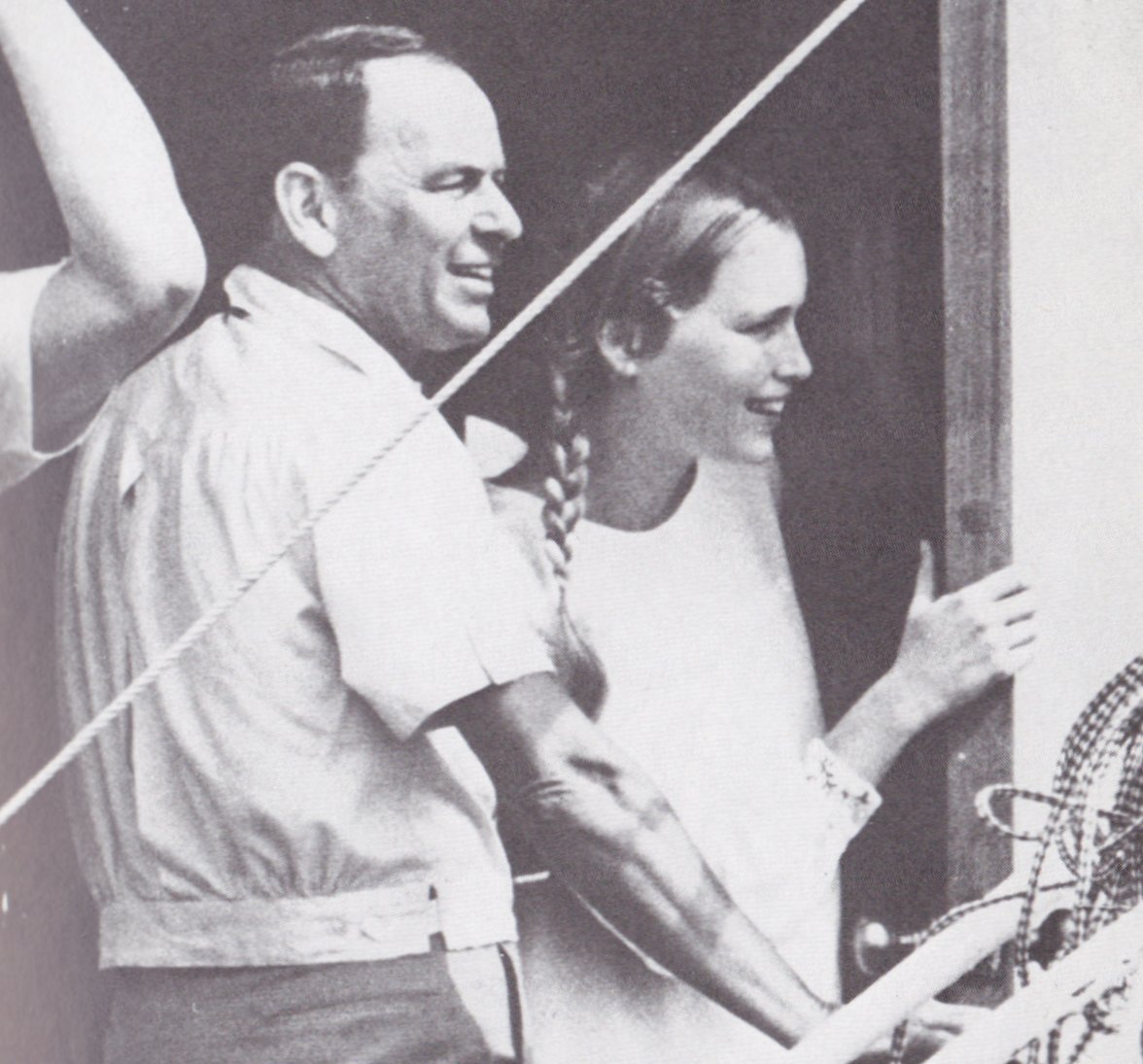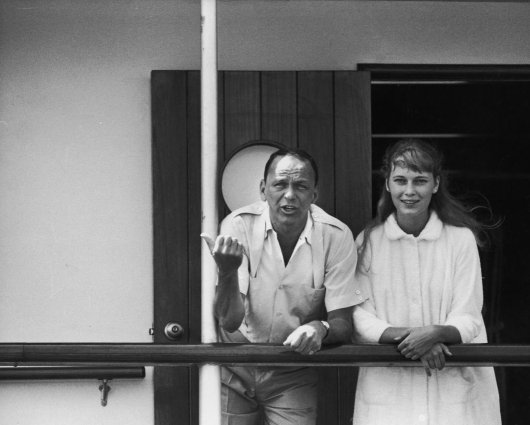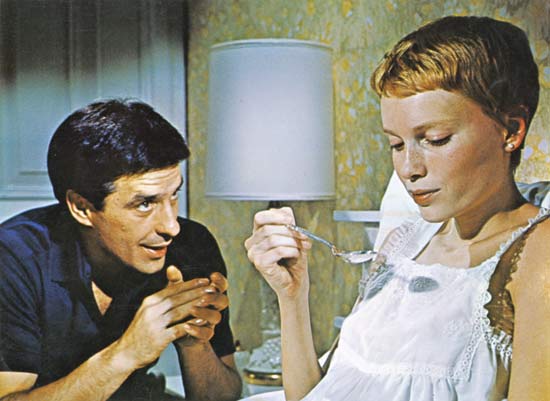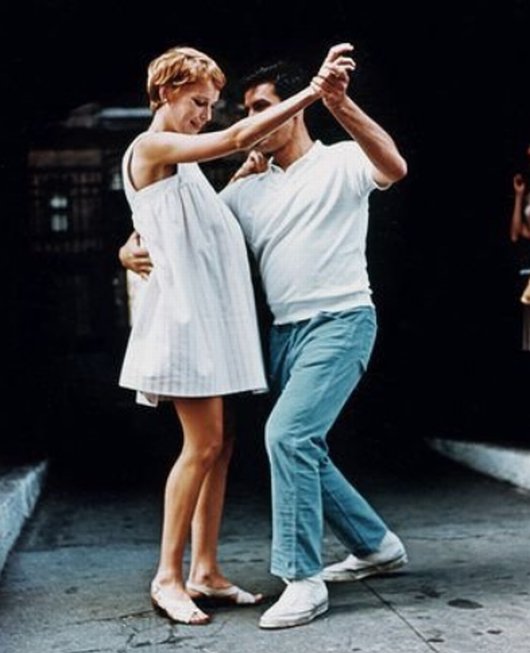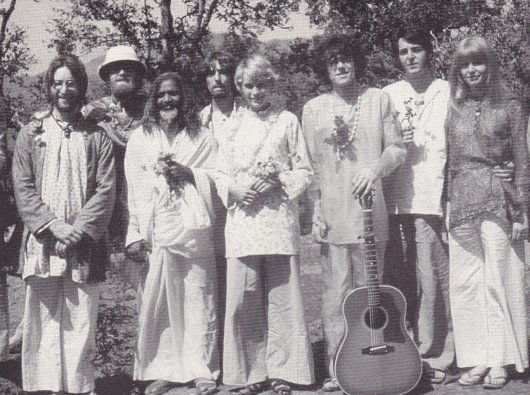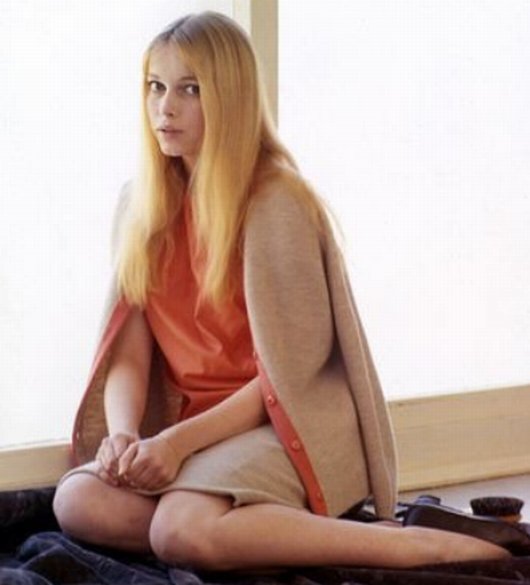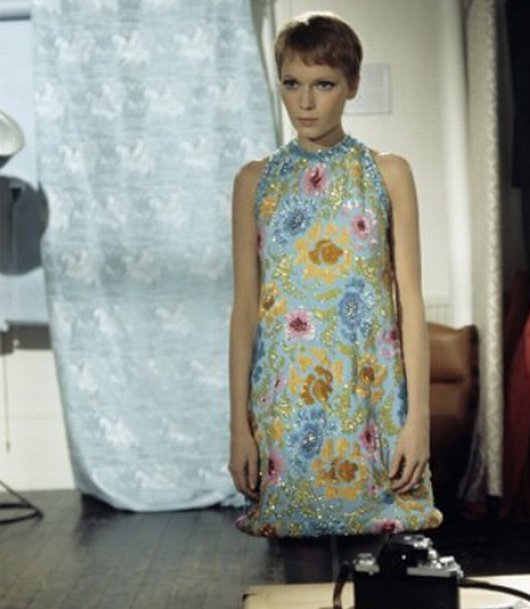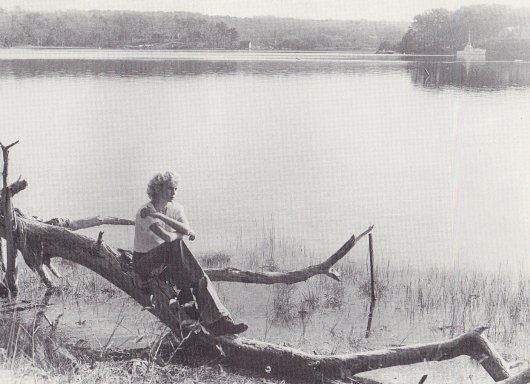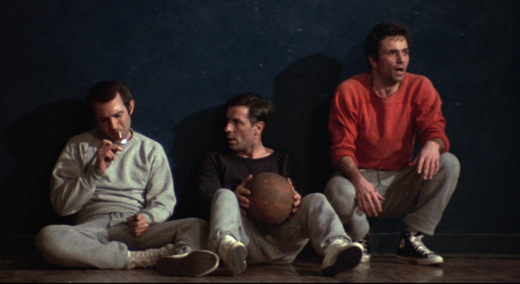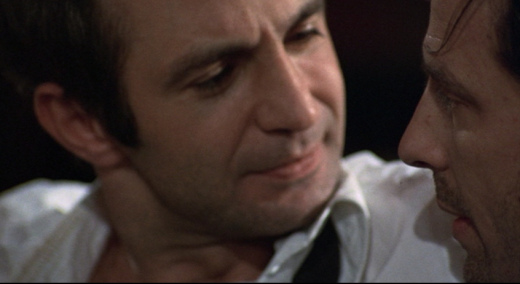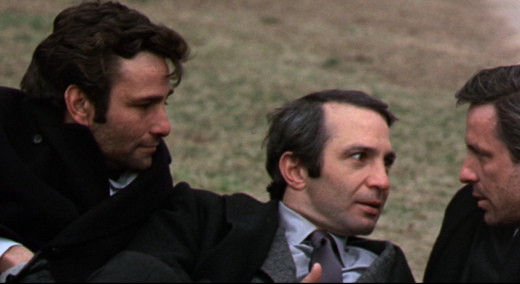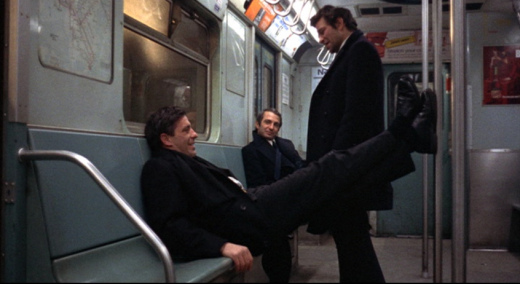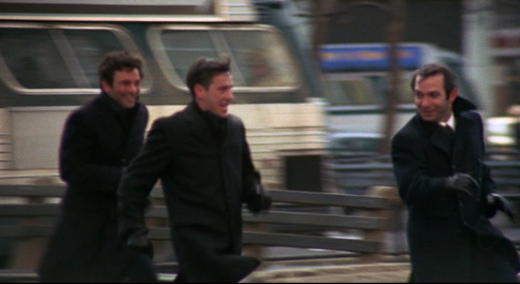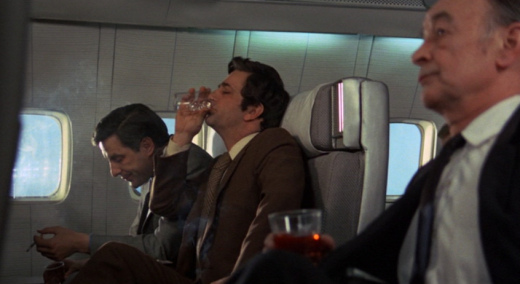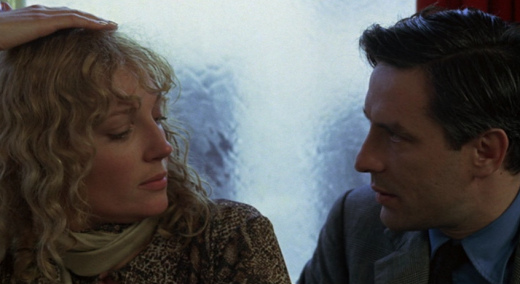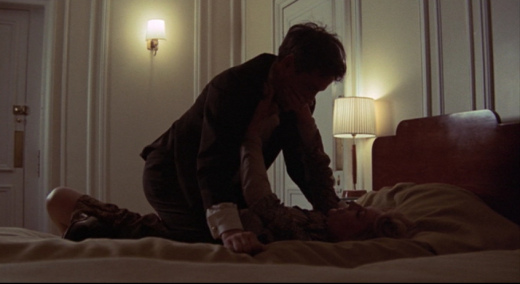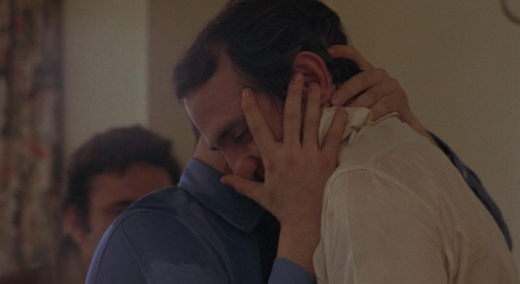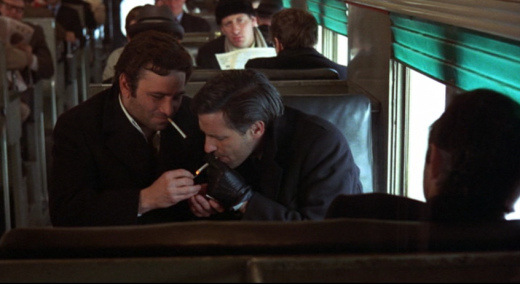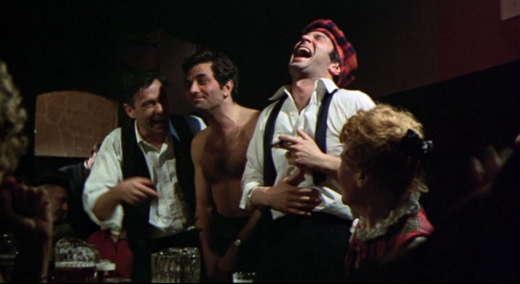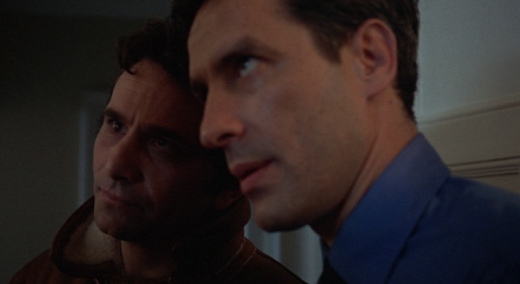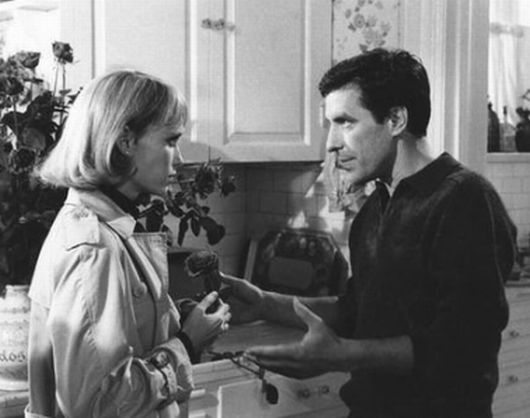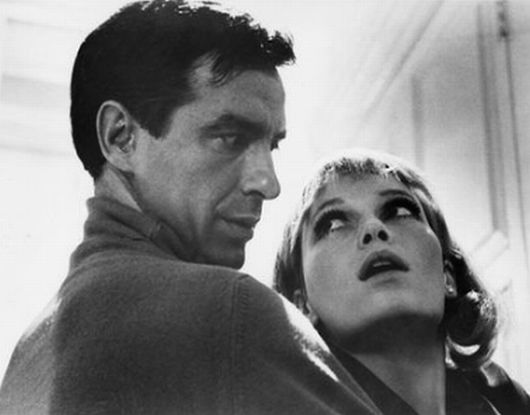 FILM
FILM In Which We Treasure Our Ongoing Relationship
 Wednesday, September 5, 2012 at 12:12PM
Wednesday, September 5, 2012 at 12:12PM 
All Her Gifts
by ELLEN COPPERFIELD
When Frank Sinatra began to pursue Mia Farrow, he spent money as fast as he could earn it, so fast he was constantly teetering on the verge of collapse — but he was still Frank Sinatra. No woman was unavailable to him. If he saw a particularly attractive woman with a date, he'd send a friend to pry the girl away.
Mia's father John introduced his daughter to Frank Sinatra at the age of eleven. John Farrow was sleeping with Frank's first wife, Ava Gardner. The affair had separated her dad from her mother, the actress Maureen O'Sullivan. John Farrow told Frank to stay away from his daughter.

Farrow was a Hollywood girl, although due to a childhood bout of polio, extremely inexperienced in matters of sex. When Frank spotted her watching him on set, he sent someone over to ask how old Mia was. She was nineteen. When Mia approached him, she dropped her purse, and everything came spilling out, including her retainer. She had never even heard him sing.
A Chicago reporter once asked Ava Gardner what she saw in Sinatra, calling him "a 119 pound has-been." She told him, "Well, I'll tell you — nineteen pounds is cock."
 with her cat Malcolm
with her cat Malcolm
Their first date ended up as a screening of his directorial debut, None But the Brave. It was a terrible picture, but Frank's move was to hold her hand. He immediately invited her to Palm Springs. When she tried to beg off, he sent a plane for her. Mia kept her cat on a leash during the trip. They slept together that second night, Mia's first time and Frank's one millionth. The premature ejaculation that had often bothered him never was a problem with Mia Farrow. Faking an orgasm was soon as easy as opening her eyes.
For Christmas, he gave her a diamond koala bear. Next Christmas, her present, wrapped neatly, was a gold cigarette case she kept joints in. It was inscribed, "Mia, Mia, with love, Francis."

Kitty Kelley's biography of Sinatra argues that it was Mia who controlled Frank. It is possible that Frank and his friends willfully mistook Mia's wonderment at being with "Frank Sinatra" as a kind of sinister infatuation. I suppose it is also possible, as Kelley alleges, that "she was extremely manipulative for such a young woman."
Things settled into a familiar routine — at first, Mia was not welcome with Frank's friends. For awhile, she understood his discretion. In her memoir What Falls Away, she writes, "After a while he moved my horse to Palm Springs and I rode in the desert. I discovered an oasis, a place that had been a water stop for covered wagons, where Salvador enjoyed splashing in the muddy pond and where I would visit an ancient Native American man who lived in a log cabin, thickly shaded by palm trees. He would always give me a glass of bitter, warm beer and recite beautiful Indian prayers. I was never able to persuade Frank to get on a horse."
 riding her horse Salvador
riding her horse Salvador
In the days before Frank's fiftieth birthday party, Mia became so angry at being disinvited she threw an ashtray at his head. When he came home, she had cut off all her hair in anguish. After one fight, he gave her a yellow Thunderbird.
Few knew about their relationship, and then everyone did. Some of Frank's buddies were astonished by his change of heart when it came to dating a younger woman. When he saw Billy Wilder's Love in the Afternoon, he harangued Wilder's wife about the film. "He was quite vehement about it," Wilder told Kelley. "So vehement he made my wife cry. He said he didn't like the picture because he thought it was immoral for an elderly man to make love in the afternoon to a young girl."
 with Salvador Dali
with Salvador Dali
Mia's Australian-born, womanizing father had died of a heart attack in 1963. An available replacement was Salvador Dali. When she married Frank, Dali's wedding gift consisted of an owl, parts of a frog, and a moon rock. When she cut her hair, Dali told her it constituted "a mythical suicide."
 wedding day 1966
wedding day 1966
Mia sampled a variety of drugs, usually to Frank's considerable annoyance. Her favorite was LSD. She called Frank "Charlie Brown." He stuck to whiskey, consuming a bottle of Jack Daniel's in a single sitting. He referred to Mia as "Angel Face." He was forty-eight years old. When Frank threw Mia a 20th birthday party with hundreds of guests, she became so unhappy she started to cry.
Mia despised Las Vegas. When Frank performed there, she slept with her head on the table. Frank was accustomed to having a variety of women in his life, many of whom were documented by FBI surveillance. Mia also took a younger companion, eventually astonished at how little her new man drank! Frank still found himself unsure. When he introduced Mia to Shirley MacLaine, asking for her opinion, Shirley told him, "What do you say about someone who looks like a twelve year old boy?" Frank began taking testerone shots in order to perform in the bedroom.
 in Miami 1967
in Miami 1967
When Marilyn Monroe was in the throes of her pill addiction, Frank gave her a white poodle she named Maf, as in Mafia.

They came back to each other for good when Frank showed her a $85,000 engagement ring. Panic had driven him to it, the idea of being truly alone. Marriage was what she wanted. He told her, she recalled in What Falls Away, "I have respect for life in any form. I believe in nature, in the birds, the sea, the sky, in everything I can see. If these things are what you mean by God, then I believe in God. But I don't believe in a personal God to whom I look for comfort or for a natural on the next roll of the dice. I'm for anything that gets you through the night, be it prayer, tranquilizers, or a bottle of Jack Daniel's."
After Jackie Mason did a few jokes about the age difference between the two, a thug punched him in the face and broke his jaw.

Frank oscillated between two crowds, the kind of people who hung Picassos and Renoirs on their walls, and his Vegas friends, more likely to put their fist through a wall than to notice what was on it. He was seamless in both social circles, Mia was the judged or judging one. A infamous boat trip to Hyannisport was covered by the press as if was the Super Bowl. It was impossible to hear the person next to you because of the persistent sound of helicopters. "You look like a girl of thirteen or fourteen," Claudette Colbert sniveled at her.
They honeymooned in London. When the wives of Frank's friends came over to take Mia shopping, she hid in the bathroom. The night before her wedding to Frank at the Sands, he had a prostitute sent over. The night before he'd fucked a former flame. Hours before the ceremony, he gave Ava Gardner the news and told her he would always love her. Mia told her friends it felt something like an adoption.
 photo by Bill Eppridge
photo by Bill Eppridge
Frank was strongly against Mia starring in Rosemary's Baby. He told her that he couldn't see her in the part, that it sounded like "some kinky devil shit" to him. There were other differences — Frank was a lifelong Democrat, and Mia was against the Vietnam War. She sent a bird in a golden cage to A Dandy In Aspic co-star Laurence Harvey, viewing the animal as herself. Frank believed in nature, the birds, the sky...
Other men made Frank insanely jealous. Publicity photos with Laurence Harvey for Aspic freaked him out completely, even though Mia never so much as exchanged a kiss with a man. If he didn't want her to be cast in a particular role, his mob cronies would make a threatening call to the producer. When he heard that Mia shared an intimate dance with his archenemy Robert Kennedy, Frank flipped out. He began cheating on her with the actress Lee Remick, and he could not get the image of her and Kennedy out of his mind.

Frank's control was temporarily replaced by Polanski's directorial obsessions. Although Mia only weighed 98 pounds, Roman wanted her to lose more weight for the last scenes in Rosemary's Baby. Polanski and Cassavetes spent most of the shoot fighting over Polanski's directing style, the man's insistence on shooting multiple takes. Polanski was really into The Mamas and the Papas; Frank demanded Mia bail on the production of Rosemary's Baby, envious of the time it took away from him. She refused. Upon signing the divorce papers the moment they arrived unexpectedly at the New York set, Mia began spending her weekends with Roman and his wife Sharon Tate.
 with John Cassavetes
with John Cassavetes
When Robert Vaughn was on the $10,000 Pyramid, he gave the clue for Frank Sinatra by telling his partner, "Mia Farrow's father." She got it in one. To be fair, Frank did use the same aftershave as Mia's dad.
Despite the divorce, Mia still hoped for some kind of reconciliation. Frank ran hot and cold; one minute he was screaming at her to put on a sweater to hide her thin arms, the next he was giving her an antique music box. Her relationship with Frank raised her profile as an actress, allowing her to demand $100,000 per film. When it became wholly apparent Rosemary's Baby was going to launch Mia's acting career into the stratosphere, he grew incensed at her.
 Mia and the Beatles minus Ringo
Mia and the Beatles minus Ringo
Mia flew to meet a friend in New Delhi, far enough from Sinatra to forget all about him. She later wrote of this time, "I tried to meditate for the recommended twelve hours a day, but I rarely came close." Lepers tried to touch her hair, the water was far from safe to drink. The Beatles suddenly arrived at her ashram. Paul and John wrote a song for her sister. She became friendly with their girlfriends, realizing how long it had been since she had talked to people her own age.
Mia shot a Joseph Losey/Elizabeth Taylor flick, Secret Ceremony, in London, living by herself in the Grosvenor Square apartment where she and Frank had spent their honeymoon. Her secretary told her, "If you kill yourself, I'll never forgive you." The flat brought back too many bad memories, so she moved to a rented home in the country near George and Ringo. She spoke to Frank from time-to-time on the phone, and eventually she realized it was over between them.

She kept the yellow Thunderbird, silver place settings, a few jewels. She began adopting animals out of desperation. She bought her mother a ring at Cartier. She took in eleven cats, and later, fifteen children. She gave the diamond koala bear away.
Ellen Copperfield is the senior contributor to This Recording. She is a writer living in San Francisco. You can find an archive of her writing on This Recording here. She last wrote in these pages about the adolescence of Barbra Streisand.

"Long Vows" - Band of Horses (mp3)
"Heartbreak on the 101" - Band of Horses (mp3)
Mirage Rock is the new album from Band Horses, and it will be released worldwide on September 18th.

 ellen copperfield,
ellen copperfield,  mia farrow
mia farrow 





























